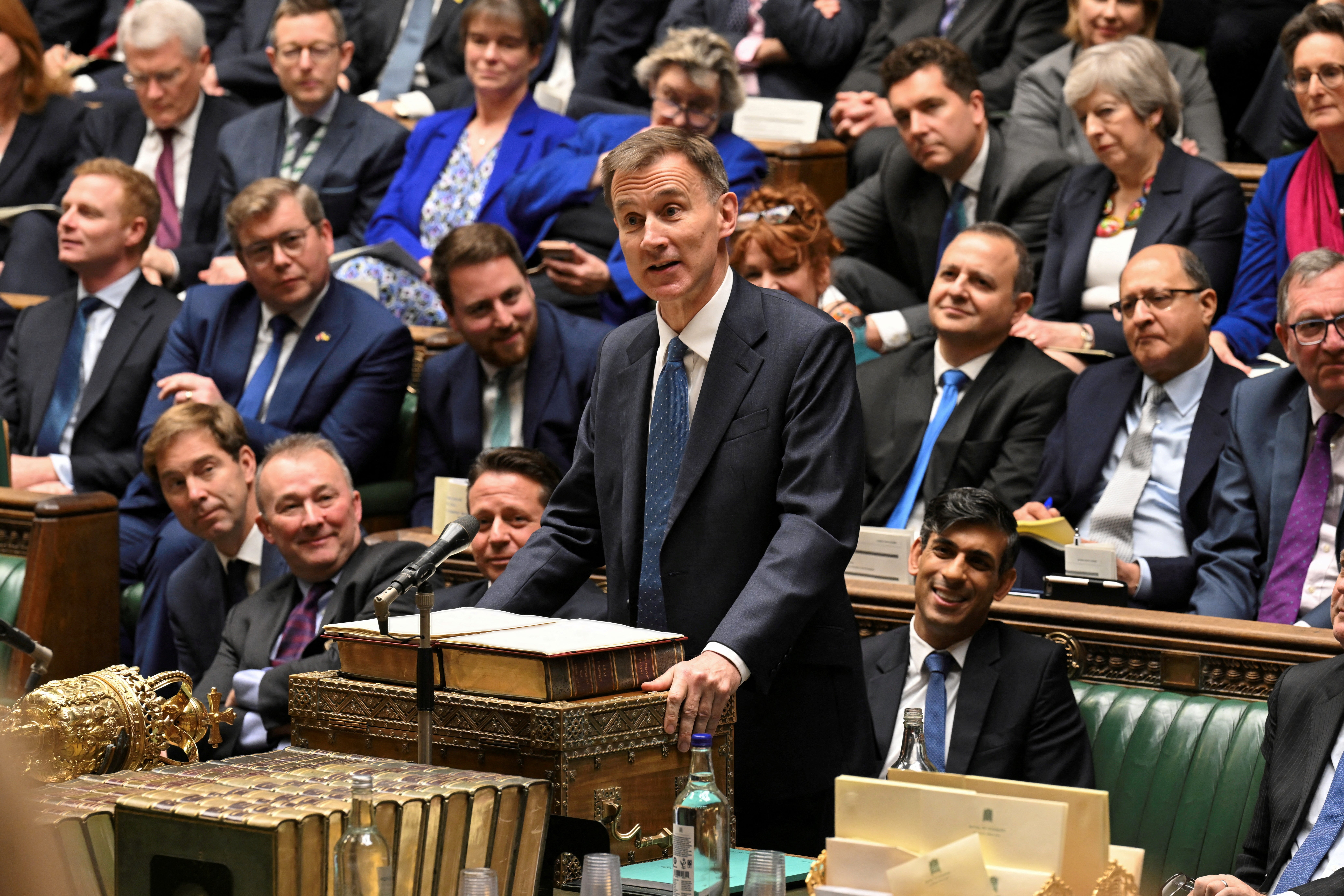What happens to childcare promises that sound too good to be true
Editorial: In March Jeremy Hunt promised 30 hours a week of free childcare for all working parents. Now for the small print

When Jeremy Hunt announced 30 hours a week of free childcare for all working parents in the Budget in March this year, it seemed too good to be true. Today we report further evidence that this is indeed the case.
New figures from Ofsted show that 3,320 of the 62,300 nurseries and childminders for under-fives in England have shut their doors in the past year, leaving 17,800 fewer childcare places available.
In March, it seemed that the chancellor, having restored order to the public finances after the disruption caused by Liz Truss and Kwasi Kwarteng, had found that there was a magic money tree after all, and that it could pay for Scandinavian levels of social welfare.
Not only would this impress parents and boost the productive capacity of the economy, but it would cut out the ground from under the feet of Rachel Reeves, the cautious shadow chancellor. Her colleague Bridget Phillipson, the shadow education secretary, had been prevented from promising to expand free childcare on the grounds that a Labour government would inherit a wasteland after 14 Tory years.
It should have come as no surprise, however, that Mr Hunt’s childcare plan was indeed too good to be true. Even the most sleep-deprived new parent could spot that the promise was heavily backloaded, in that it is not planned to be delivered in full until September 2025.
The politics of the promise are also a bit more complicated than was realised by some of the Conservative MPs who cheered the announcement, thinking that they had stolen one of the opposition’s best tunes.
The expansion would be phased in, Mr Hunt said. In addition to the 30 hours of free childcare currently offered to working parents of children aged three and four, 15 hours would be offered to working parents of two-year-olds from April 2024. That 15 hours would then be extended to children as young as nine months old in September 2024, just before the most likely date of the general election.
Presumably, the calculation was that working parents would be so grateful for half a loaf that they would vote Conservative in the eager expectation of receiving the other half of the loaf – the extension from 15 to 30 hours a week for all under-threes – a year later.
There was, however, a rather obvious flaw in this plan. If the funding for the full expansion of free childcare in September 2025 really was available, then it would be available to a Labour government – even one as ruthlessly responsible as Keir Starmer and Ms Reeves intend to be.
We can leave aside for the moment whether any of Mr Hunt’s public spending plans for after the election are remotely credible: the point is that Labour can promise to match the Tory childcare pledge – and possibly to do so with more conviction, as Labour ministers are more likely to prioritise such things if they are ever in charge.
The crucial point about Mr Hunt’s plan, therefore, is its deliverability before the election, in its first two phases, in April and September next year. If that goes wrong, the dream of north European standards of childcare support for working parents will turn into the reality of another broken Tory promise.
The prospects do not look good. As we also report today, most analysts agree that the promises are unlikely to be delivered with anything like complete coverage because, despite increases in the amounts per child allocated by the government, childcare providers are struggling to recruit and retain staff. Research by the University of Leeds and the Early Education and Childcare Coalition estimates that 100,000 extra workers are needed to make the pledge work.
This week, the government announced £400m of extra funding for childcare places, but that hardly compensates for the effects of inflation, and providers remain concerned about the lack of trained staff to fill the roles.
It was sensible of Mr Hunt to phase in the expansion by stages because at least we will discover in April how far short of the government’s ambition the scheme will fall, which will give either this government or the next one time to get the policy right before attempting a full roll-out.
In the meantime, working parents and parents who want to work but cannot afford to will continue to pay the price.






Join our commenting forum
Join thought-provoking conversations, follow other Independent readers and see their replies
Comments